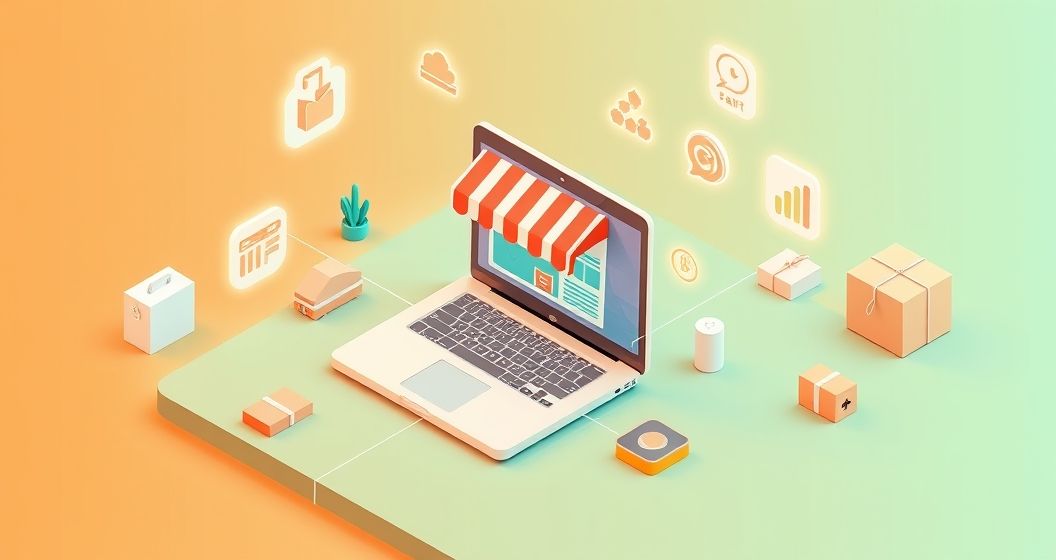Managing a growing Etsy shop is an exciting challenge, but it can quickly become overwhelming. Between creating products, managing listings, processing orders, and handling customer inquiries, the daily workload can limit your ability to scale. This is where Etsy integrations come into play. By connecting your store to other powerful software and platforms, you can automate repetitive tasks, streamline operations, and unlock new opportunities for growth. These tools are designed to work seamlessly with your shop, creating a more efficient and profitable business ecosystem.
What Are Etsy Integrations?
Etsy integrations are third-party applications or software services that connect directly to your Etsy store through its Application Programming Interface (API). Think of them as digital assistants that handle specific tasks automatically. For instance, an integration can sync your inventory with another sales channel, send order details to a shipping provider, or add customer information to your email marketing list. This connection allows data to flow between systems without manual input, reducing errors and saving you valuable time to focus on creativity and strategy.
Key Benefits of Integrating Your Etsy Shop
Leveraging Etsy integrations offers a multitude of advantages that can transform your operations. The most significant benefit is automation, which minimizes the time spent on administrative duties like order entry and bookkeeping. This leads to improved accuracy, as manual data entry errors are eliminated. Furthermore, integrations enable multi-channel selling by synchronizing your inventory across Etsy and other platforms like Shopify or your own website. This expands your market reach while preventing overselling. Finally, these tools can enhance customer service by streamlining communication and fulfillment processes.
Top Categories of Etsy Integrations
The world of Etsy integrations is vast, with tools designed to solve nearly every challenge a seller might face. Understanding the primary categories can help you identify which solutions will have the most significant impact on your business. From production to marketing, the right application can optimize your workflow.
1. Print-on-Demand (POD) Services
For sellers of custom apparel, home decor, and accessories, print-on-demand integrations are revolutionary. Services like Printful and Printify connect directly to your Etsy shop. When a customer places an order for a POD product, the integration automatically sends the order details to the production partner. They then print, pack, and ship the item directly to your customer under your brand. This eliminates the need for you to hold physical inventory, manage production, or handle shipping, making it a highly scalable business model.
2. E-commerce Platform Syncing
As your brand grows, you may want to sell on multiple platforms beyond Etsy. E-commerce platform integrations, such as those for Shopify, WooCommerce, or BigCommerce, are essential for multi-channel management. These tools synchronize your product listings, inventory levels, and orders across all channels. When an item sells on your website, the inventory is automatically updated on Etsy, and vice versa. This creates a unified sales system, prevents stockouts, and provides a holistic view of your business performance from a single dashboard.
3. Shipping and Fulfillment Management
The shipping process can be one of the most time-consuming aspects of running an online store. Shipping integrations like ShipStation, Pirate Ship, and Shippo simplify this entire workflow. They import your Etsy orders automatically, allowing you to compare shipping rates from various carriers, purchase postage, and print shipping labels in bulk. Once an order is shipped, the integration automatically updates the order status on Etsy and sends tracking information to the customer, ensuring a smooth and professional fulfillment experience.
4. Accounting and Bookkeeping
Keeping your finances in order is critical for business health. Accounting integrations for software like QuickBooks, Xero, or Wave automate your bookkeeping. They can sync your Etsy sales data, fees, and expenses directly into your accounting software. This eliminates the need for manual data entry, reduces the risk of errors, and makes tax preparation significantly easier. With accurate, up-to-date financial records, you can make more informed decisions about pricing, budgeting, and overall business strategy.
5. Marketing and Customer Communication
Building a relationship with your customers is key to fostering repeat business. Marketing integrations help you stay connected. For example, you can connect your Etsy shop to email marketing platforms like Mailchimp or AWeber to automatically add new customers to your mailing list. This allows you to send newsletters, announce new products, or share special promotions. Other integrations can help you manage social media by scheduling posts or creating ads based on your most popular Etsy listings, driving more traffic back to your store.
How to Choose the Right Integration
With so many options available, selecting the right Etsy integrations for your shop requires careful consideration. First, identify your biggest pain points. Are you spending too much time on shipping, or is inventory management your main challenge? Focus on solutions that address your most pressing needs. Next, consider your budget. Many integrations offer tiered pricing, with free plans for basic features and monthly subscriptions for more advanced capabilities, often ranging from $10 to $50 per month. Always check for user reviews and ratings to gauge reliability and customer support quality. Finally, ensure the integration is scalable and can grow with your business.
Understanding the Role of the Etsy API
The technology that makes all these connections possible is the Etsy API. An API is a set of rules that allows different software applications to communicate with each other. When you authorize an integration, you are giving it permission to access specific data in your shop through the API. The beauty of this system is that you do not need any coding knowledge to use it. The integration developers have done all the technical work, providing a user-friendly interface for you to connect the service to your shop with just a few clicks.
Final Thoughts on Scaling Your Business
Etsy integrations are more than just convenient tools; they are strategic assets that empower you to build a more resilient and scalable business. By automating manual processes, you free up your time to focus on product development, branding, and customer engagement—the activities that truly drive growth. Whether you are just starting or are an established seller, exploring and implementing the right integrations can streamline your operations, expand your reach, and pave the way for long-term success on the Etsy platform and beyond.






